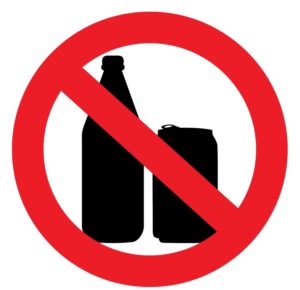Do you usually take longer than other people to get drunk? Regular drinking can make a person alcohol tolerant. The reduced sensitivity requires more alcohol to be taken to attain the same effects like before the tolerance was formed. Alcohol tolerance is actually not a good thing as it can lead to alcohol dependency and heavy consumption of this chemical over a couple of years can cause reverse tolerance.
Alcohol Tolerance Has Been Linked to a Gene
In 2005, researchers (Henrike Scholz, Mirjam Franz, and Ulrike Heberlein) discovered that some people have a  “hangover gene” that heightens their tolerance to alcohol. People without this gene, who normally begin to sway after just drinking just one pint, will always behave like this no matter how many times they go to a bar.
“hangover gene” that heightens their tolerance to alcohol. People without this gene, who normally begin to sway after just drinking just one pint, will always behave like this no matter how many times they go to a bar.
On the other hand, those who carry the hangover gene, the more times they go out to drink, the longer it takes for them to become drunk. However, scientists warn that having this gene can be dangerous. Like with any other hard drug, the more it’s consumed, the more a person is likely to develop dependency and addiction to it.
The scientists that discovered this gene after conducting experiments on fruit flies chose to name it “hangover”. They found that the fruit flies displayed the same sort of symptoms as human beings after consuming alcohol (in the experiment they exposed the flies to ethanol vapor).
When the flies consumed ethanol vapor they became hyperactive, uncoordinated and ultimately passed out. Using a tool called an inebriometer, the researchers found fruit flies with the gene of tolerance were less drunk after every exposure.
The Truth about Alcohol Tolerance
 It is important to know that having the ability to hold your alcohol, what doctors refer to as tolerance, is normally about how intoxicated you feel, and not about how intoxicated you are. This condition can potentially lead to alcoholism, because individuals who have the ability to drink a lot without feeling high tend to consume more alcohol than those with low tolerance to the chemical.
It is important to know that having the ability to hold your alcohol, what doctors refer to as tolerance, is normally about how intoxicated you feel, and not about how intoxicated you are. This condition can potentially lead to alcoholism, because individuals who have the ability to drink a lot without feeling high tend to consume more alcohol than those with low tolerance to the chemical.
Alcohol causes nerve cells in the brain to get used to its presence. People who are tolerant to alcohol need more of the substance to produce an effect, like reducing anxiety. Moreover, liver enzymes made to detoxify alcohol become more with frequent drinking; therefore, the liver of a person who is an alcoholic processes alcohol faster than it did when alcohol was first exposed to the system, leading to the development of alcohol tolerance.
The amount of time it takes to become tolerant differs from one person to another. In general, long-term exposure to the substance can cause tolerance of its intoxicating effects and ultimately to physical dependence. If an alcohol-dependent person stops drinking, they will suffer from withdrawal symptoms such as:
- Tremors
- Sweating
- Seizures
- Anxiety or
- Hallucinations
The center of action for all these effects is in the brain.
How to Lower Alcohol Tolerance
Fortunately, it is possible to reduce alcohol tolerance and its associated health risks. You can reverse tolerance  slowly by moderating the amount of drinks you drink and your frequency of drinking, or just take a break from consuming this substance for several weeks.
slowly by moderating the amount of drinks you drink and your frequency of drinking, or just take a break from consuming this substance for several weeks.
Contact Us
Are you suffering from a hangover? There’s a way in which you can get rid of it quickly. Hangover Hospital in Key West offers hangover relief services. Contact us today to get help from any of our medical practitioners.
